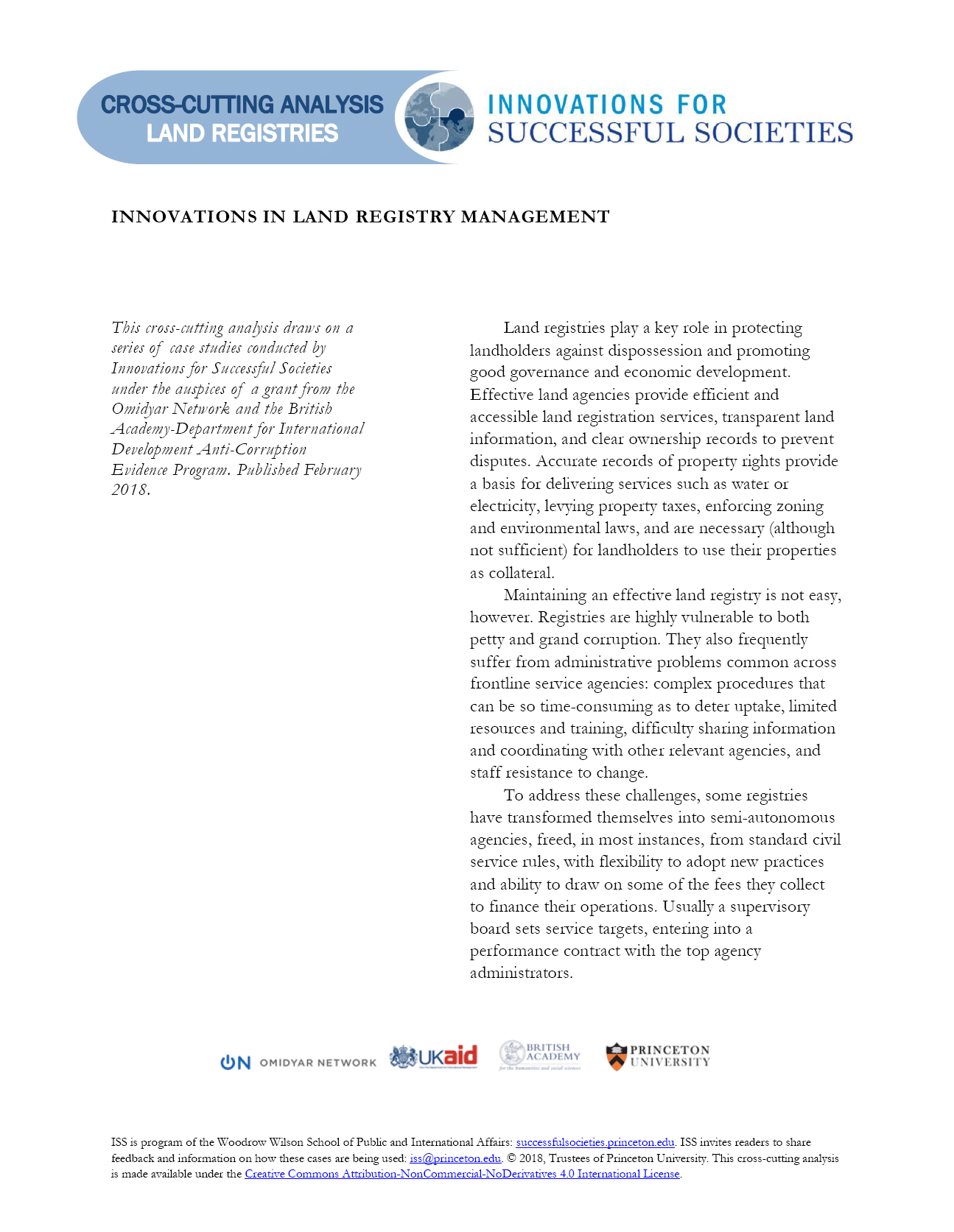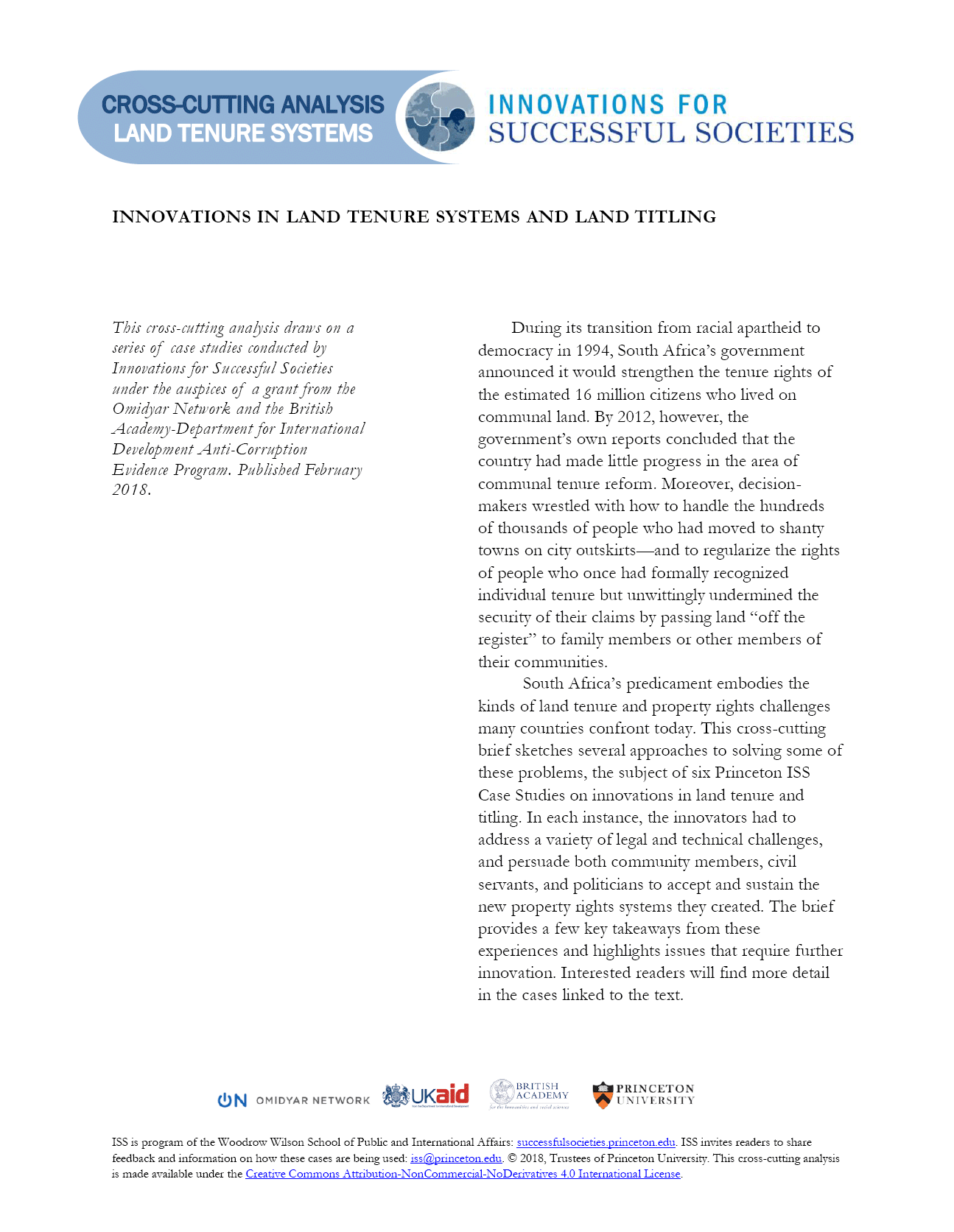
Topics and Regions
Neil Sorensen joined the Land Portal as its Communications Specialist in October 2015. He has extensive experience leading communications for international organizations and developing relationships with civil society, donors, intergovernmental agencies, the media and the private sector. Previously, Neil worked for the International Fund for Agriculture Development (IFAD) as a Governing Bodies Officer and Strategic Adviser to the Secretary of IFAD. He has also led communications for three international organizations, including the International Land Coalition, the International Federation of Agricultural Producers (IFAP) and the International Federation of Organic Agriculture Movements (IFOAM). He holds a Master’s degree in Global Diplomacy from the University of London School of Oriental and African Studies (SOAS) as well as a Bachelor’s degree with a double major in German and Sociology from St. Cloud State University.
Details
Location
Contributions
Displaying 791 - 800 of 1156Land Portal Masterclass on Open Data Awareness Raising at the India Land and Development Conference (ILDC)
Women and Land Rights
There is a direct relationship between women’s right to land, economic empowerment, food se-curity and poverty reduction. A gender approach to land rights can enable shifts in gender power relations, and assure that all people, regardless of sex, benefit from, and are empowered by, development policies and practices to improve people’s rights to land. This brief gives an over-view on how to consider gender aspects in pro-jects and programmes addressing land rights.
Innovations in Land Registry Management (Cross-Cutting)
Land registries play a key role in protecting landholders against dispossession and promoting good governance and economic development. Effective land agencies provide efficient and accessible land registration services, transparent land information, and clear ownership records to prevent disputes. Accurate records of property rights provide a basis for delivering services such as water or electricity, levying property taxes, enforcing zoning and environmental laws, and are necessary (although not sufficient) for landholders to use their properties as collateral.
Princeton University
hartered in 1746 as the College of New Jersey — the name by which it was known for 150 years — Princeton University was British North America’s fourth college. Located in Elizabeth for one year and in Newark for nine, the College of New Jersey moved to Princeton in 1756. It was housed in Nassau Hall, which was newly built on land donated by Nathaniel FitzRandolph. In 1896, when expanded program offerings brought the College university status, the College of New Jersey was officially renamed Princeton University. The Graduate School was established in 1900.
British Academy
The British Academy is the UK’s national body for the humanities and social sciences – the study of peoples, cultures and societies, past, present and future. We have three principal roles: as an independent Fellowship of world-leading scholars and researchers; a Funding Body that supports new research, nationally and internationally; and a Forum for debate and engagement – a voice that champions the humanities and social science.
Innovations in Land Tenure Systems and Land Titling (Cross-Cutting)
During its transition from racial apartheid to democracy in 1994, South Africa’s government announced it would strengthen the tenure rights of the estimated 16 million citizens who lived on communal land. By 2012, however, the government’s own reports concluded that the country had made little progress in the area of communal tenure reform.
Land Portal Foundation Launches Thematic Portfolio on Land and Corruption
The Land Portal Foundation has published a Thematic Portfolio on Land & Corruption to provide greater understanding and promote awareness of the intersection of these critical issues.
Corruption Perceptions Index 2017 Shows High Corruption Burden In More Than Two-Thirds of Countries
Mexico: Right-wing Presidential Hopeful Accused of More Corruption
Institutions of land reform need to be strengthened‚ advocate says
Government needs to strengthen institutions of land reform‚ eliminate corruption and deal with bureaucracy if it wants to succeed with the new land reform proposals.
That’s according to prominent advocate Tembeka Ngcukaitobi.
He said this was the thrust of what President Cyril Ramaphosa announced in his state of the nation address to Parliament and what the Economic Freedom Fighters have tabled before the same house.










